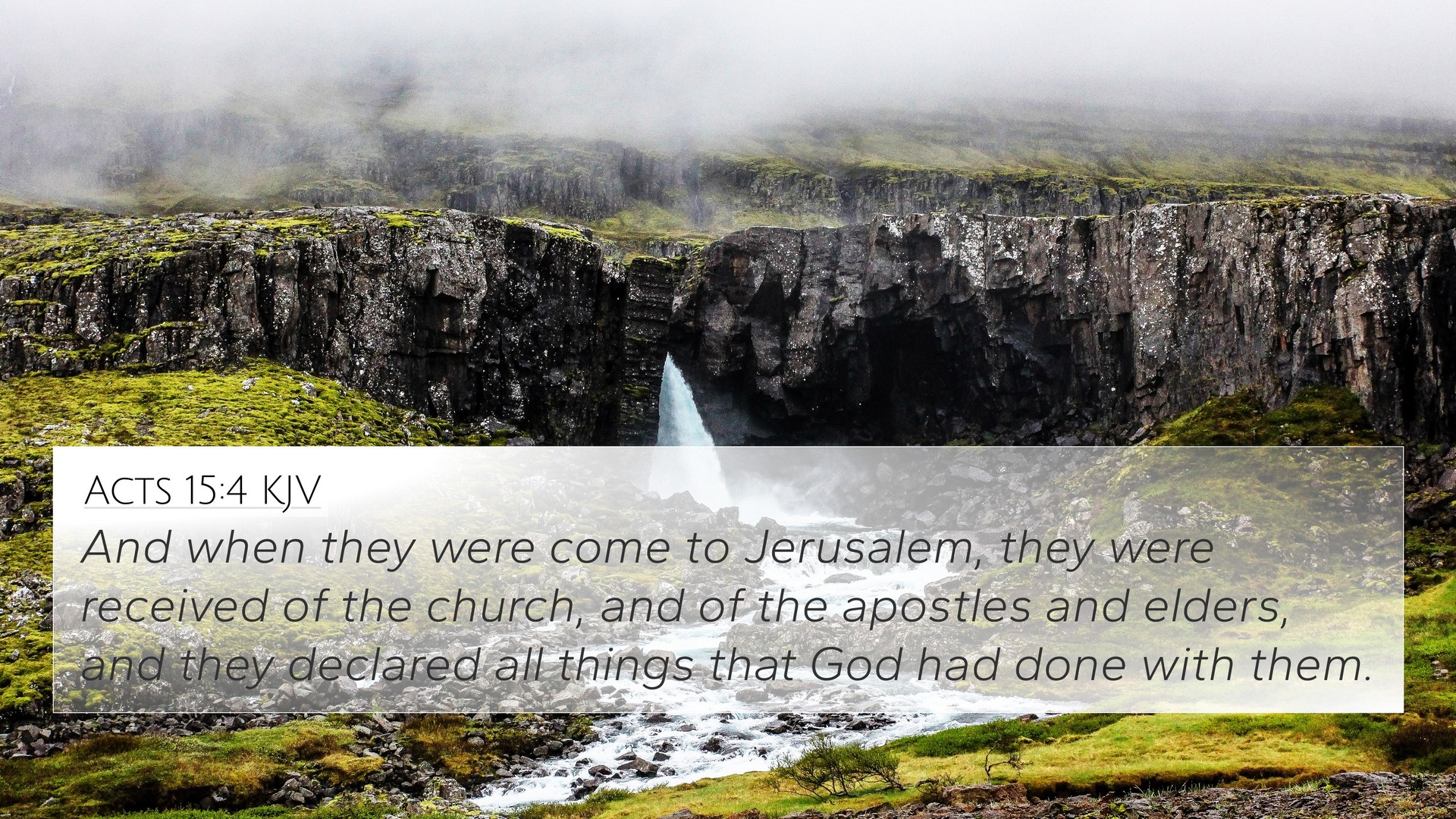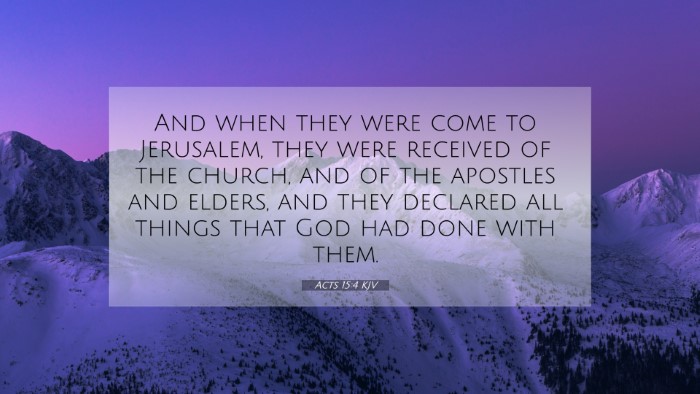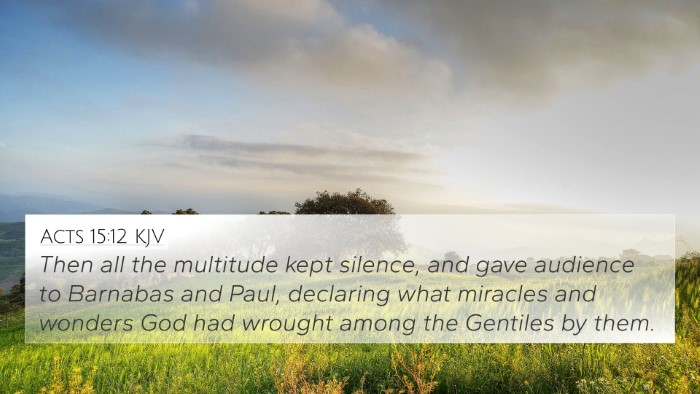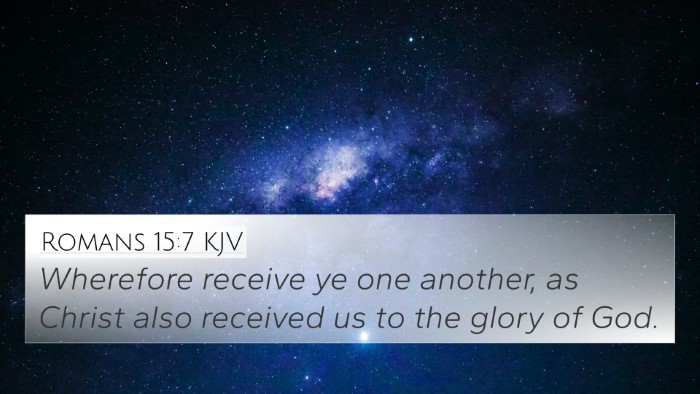Understanding Acts 15:4
Acts 15:4 states: "And when they had come to Jerusalem, they were received of the church, and of the apostles and elders, and they declared all things that God had done with them."
Summary of Biblical Context
The verse occurs in the context of the first church council in Jerusalem, where early church leaders gathered to discuss crucial theological and doctrinal issues, particularly concerning the Gentile believers. The arrival of Paul and Barnabas from their missionary journey signifies the importance of sharing their experiences and the work of God in the Gentile world. This event reflects the early church’s dedication to unity and clarity in the faith.
Verse Analysis and Insights
This verse is rich in meaning, offering several theological and practical insights:
- Recognition of Church Community: Matthew Henry notes the importance of communal recognition in the church. The apostles and elders exemplify the need for validation and support within spiritual leadership.
- Testimony of God’s Work: Albert Barnes emphasizes that the declaration of what God had done serves as a powerful testimony to the faith community. It suggests that sharing experiences of God’s work fosters faith and strengthens ties among believers.
- The Unity of Believers: Adam Clarke points to the unity established through shared mission and purpose, highlighting how the experiences of Paul and Barnabas resonate with the broader church mission.
Cross-Reference Insights
In exploring cross-references for Acts 15:4, we can identify several related scriptures that enrich our understanding:
- Acts 13:1-3 - The commissioning of Paul and Barnabas illustrates the sending out of leaders, akin to their returning and reporting of God's work.
- Acts 14:27 - Paul and Barnabas reporting back to the church in Antioch demonstrates the communal nature of sharing God’s work, showing continuity with Acts 15:4.
- Galatians 2:9-10 - This passage about acceptance into fellowship reinforces the idea of unity and the importance of ministry among different groups.
- Philippians 1:3-5 - Paul’s acknowledgment of the partnership in support of the gospel aligns with the spirit of collaboration seen in Acts 15.
- 1 Corinthians 12:12-27 - The body of Christ metaphor illustrates the interconnectedness of the church, tying into the acceptance and understanding of various ministries.
- Acts 2:42-47 - The early church’s communal life anchors the context in which Paul and Barnabas share their testimony, reflecting the foundational unity of believers.
- Romans 15:4-6 - Paul hints at the importance of unity among believers through shared testimonies, directly connecting with the theme of Acts 15:4.
Thematic Connections
Several themes emerge from Acts 15:4 that link it to other Bible verses:
- Faithful Reporting: Sharing testimonies is a vital component of nurturing faith among believers (1 Timothy 1:15).
- Dependence on God: Every success in ministry is attributed to God’s work (John 15:5; “Without me, you can do nothing”).
- The Role of Church Leadership: The acknowledgment of church leaders played a crucial role in affirming God’s work (Ephesians 4:11-13).
Applying the Insights
Incorporating the understanding gleaned from Acts 15:4 in one’s life involves several practical steps:
- Engagement with the Community: Actively participating in church and sharing experiences of God's work can unify and encourage the faith community.
- Valuing Leadership: Recognizing the role of spiritual leaders in guiding and affirming church initiatives fosters a supportive environment.
- Continuous Reflection: Reflect on personal and communal testimonies to strengthen faith and guide others.
Conclusion
Acts 15:4 encapsulates an essential moment in the early church, demonstrating the importance of sharing testimonies and fostering unity among believers. The supporting Bible verses highlight thematic connections and encourage a reflective approach to faith.

















